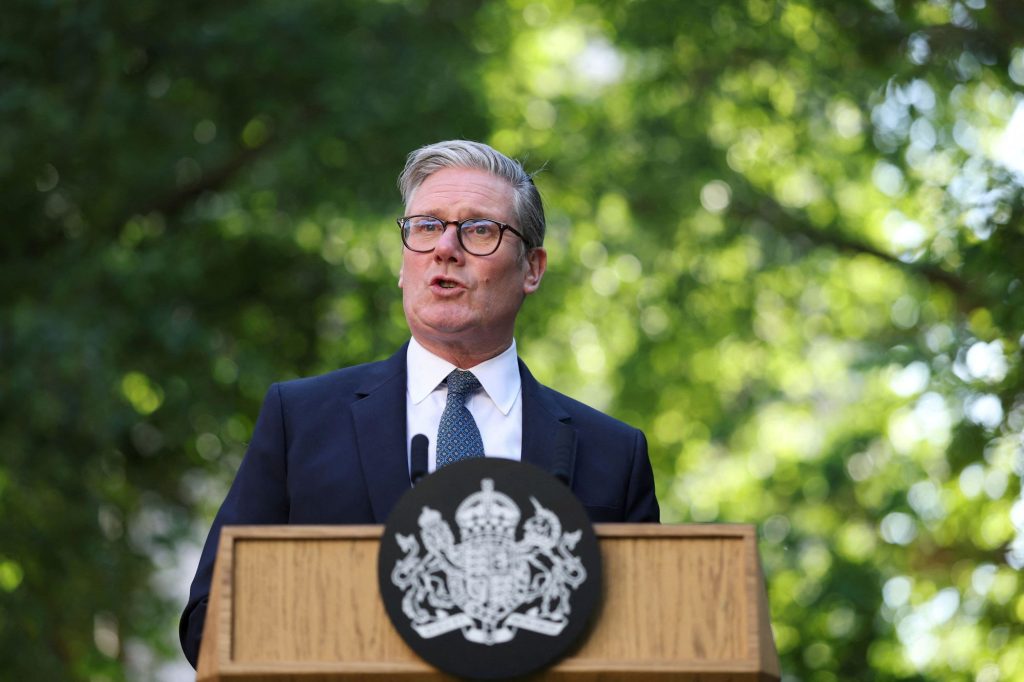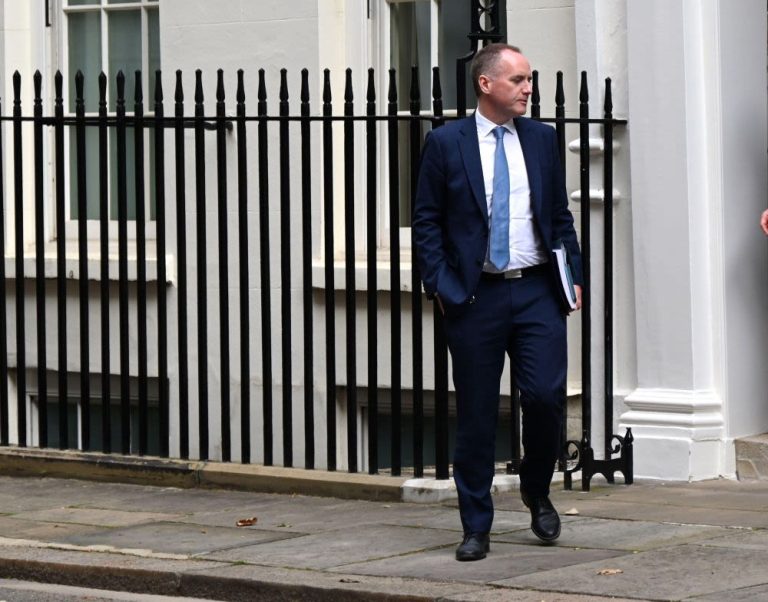
3BCBWH1 Britain's Prime Minister Keir Starmer speaks during a reception following the UK-EU summit, in London, Monday May 19, 2025. (Hannah McKay/Pool via AP)
A united front demanding an immediate halt to hostilities
In a rare display of international unity, the United Kingdom, France and Canada issued a joint declaration on Monday, warning that more “concrete actions” will follow if Israel does not cease its renewed military operations in Gaza and immediately ease restrictions on humanitarian assistance. The three governments described the current situation in Gaza as “intolerable” and criticised recent Israeli measures allowing only limited food deliveries as “wholly inadequate.”
Specific calls on Israel and Hamas
The statement outlines urgent demands for both sides of the conflict:
- Halt military operations: The governments call on the Israeli authorities to immediately cease this latest offensive in the Gaza Strip.
- Unrestricted humanitarian aid: They demand full engagement with UN agencies and aid organisations to restore deliveries of food, water and medical supplies in accordance with international humanitarian principles.
- Release of hostages: They urge Hamas to free the remaining hostages taken during the 7 October 2023 attacks “so cruelly” that sparked the current crisis.
- Opposition to forced displacement: The co-signatories condemn remarks by Israeli officials threatening permanent civilian relocation as breaches of International Humanitarian Law.
- Freeze on settlement expansion: They insist Israel halt all settlement activity in the West Bank, warning that new construction is illegal under international law and undermines prospects for a lasting two-state solution.
Proportionality and international law
While affirming their longstanding support for Israel’s security and its right to defend its citizens against attacks – particularly after the Hamas-led invasion on October 7, which resulted in over 1,200 deaths and 251 abductions – the three countries emphasised that the scale and intensity of the current retaliation have been markedly disproportionate. They described these actions as “egregious” and cautioned that they risk violating key provisions of international humanitarian law.
This stance highlights an evolving recognition among Western allies that unrestrained military force, when it leads to extensive civilian casualties and widespread destruction of infrastructure, cannot be sustained without consequence.
Warning of “further concrete actions”
Signalling a clear escalation, the UK, France and Canada pledged to implement additional measures should Israel fail to comply with these demands. Although the exact nature of these actions remains unspecified, potential steps could include:
- Targeted sanctions: Financial or travel restrictions on individuals deemed responsible for authorising or overseeing the operations.
- Diplomatic repercussions: Suspension of high-level visits or downgrading of bilateral engagements.
- Legal actions: Support for investigations by international courts into alleged violations of humanitarian law.
Backing ceasefire diplomacy
The joint communiqué also offered full backing to efforts led by the United States, Qatar and Egypt to negotiate an immediate ceasefire in Gaza, coupled with the release of all 59 hostages still being held. The three governments stressed that these negotiations are at a crucial juncture and must succeed swiftly to stem further human suffering.
By aligning themselves publicly with these diplomatic channels, the UK, France and Canada hope to maximise pressure on both Israel and Hamas to endorse a sustainable pause in hostilities.
Reaffirmation of a two-state solution
Beyond the immediate ceasefire, the statement reiterates that only a two-state framework can deliver lasting peace for Israelis and Palestinians. The co-signatories declared their commitment to work towards:
- Re-establishing viable Palestinian statehood: Efforts to resume serious negotiations towards a sovereign, contiguous Palestinian territory alongside Israel.
- Ensuring security guarantees: Mechanisms to protect both Israeli and Palestinian civilians from future outbreaks of violence.
- Restoring regional stability: Coordinated international support for economic reconstruction and governance reform in Gaza and the West Bank.
Human toll and humanitarian crisis
The conflict’s origins date back to the Hamas assault on 7 October 2023, a brutal incursion that claimed over 1,200 lives in southern Israel. Since then, Israeli airstrikes and ground operations have killed more than 50,000 people in Gaza, according to figures from the Hamas-run health ministry, which does not distinguish between fighters and civilians.
In addition to the staggering death toll, large swathes of Gaza’s infrastructure lie in ruins, leaving hospitals overwhelmed and critical services—water, electricity and sanitation—crippled. The joint statement describes this as “unacceptable” and stresses that denying essential aid to civilians only deepens the humanitarian catastrophe.
Domestic political pressures
In the UK, the Labour government has faced mounting calls from its own MPs to adopt a tougher stance on Israel’s conduct in Gaza. Recent weeks have seen a surge in backbench pressure, forcing ministers to clarify that they will “not stand by” if civilian suffering continues unchecked.
By issuing this joint communiqué with France and Canada, the UK government signals that its rhetoric is backed by tangible policy options and that it is prepared to align with like-minded democracies to demand compliance with international norms.
This marks a shift from earlier statements, which focused primarily on advocating for a sustainable ceasefire and the release of hostages but stopped short of threatening punitive measures.





